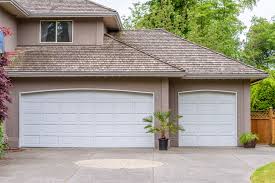
29 April,2025
In the making of a garage door unit, complex mechanisms are applied to make the garage door function. In a garage door’s mechanism, springs have an important role to play. Garage door springs facilitate the vertical movement of the garage doors. So, when one is damaged, it takes a toll on the entire garage door.
But before we get into that, it’s important to know there are 2 types of springs in a garage door.
Both the extension spring and the torsion spring can be damaged easily because of their contradictory nature. What’s even worse is there’s ambiguity in the signs of failure, too. So, be a little more careful than you are on a usual weekday.
Below are 7 reasons that indicate your garage door’s springs are broken:
For garage door springs, their usage is measured in cycles. Where one cycle equates to one upward and one downward lift. The golden rule is to replace the springs after every 10,000 cycles. This equates to 7-8 years of service.
But that’s an estimate put together based on 3-4 cycles per day. This duration can alter based on the frequency of usage.
However, after 10,000 spring cycles, it’s time to replace your door’s springs. While it’s impractical to expect regular people to notice such technicalities, there are telltale signs of garage door spring replacement. Such as annoying squeaks, misalignment of tracks and more.
There are some higher cycles, too. These allow 25,000-50,000 cycles per garage door spring. Replacing your garage door’s springs with one that has better specifications will prolong your garage door spring’s lifespan.
What does a June afternoon feel like in Los Alamitos? Or the rest of California? It’s just an evil blend of scorching heat, humidity and exhaustion. The effect California heat has on us humans doesn’t spare garage doors. Or all metallic elements, for that matter.
Extreme heat expands the springs, manipulating the integrity of the spring. Such external forces of contraction and expansion (thanks to chilly winters and painful summers) play a role in distorting the integrity of the springs. Causing cracks and tears.
Keep your garage door’s springs lubricated at regular intervals. It will lower the effect of external forces that cause the springs to expand and contract. Thus, not exerting as much pressure on the garage doors’ springs.
Modern problems require traditional solutions. Adding a heap load of gadgets and decor pieces on your garage door will add load on the door. Thus, exerting much more pressure on the springs during upward/downward lifts. Added pressure means a higher probability of garage door spring failure.
Often, broken rollers are the reason behind the added weight. Inspect for the same. If that is the case, replace the garage door rollers.
However, if that isn’t the case, remove all materials that are adding weight to your garage door and its springs. Insulation panels are also way too heavy to be managed by the two springs of a garage door unit. So, remove all added accessories.
Owners who tend to overlook lubrication of garage door springs, cleaning the tracks, and tightening of nuts and screws often fall prey to garage door failure. Garage door spring failure is often caused by such neglect in maintenance. This results only in added responsibilities, inconveniences and skyrocketing expenses.
Schedule frequent maintenance of the garage door unit. Including all parts— rollers, springs, tracks, cable drums, nuts and screws, opener and more. This will ensure a healthy condition of the garage door and its’ springs.
Read More:
Top 10 Maintenance Tips for the Smooth Running of Your Garage Door
The interaction of metallic objects with the atmosphere leads to oxidation of the object. Oxidation results in rust around the garage door springs, thus making it inefficient. This happens due to neglect in maintenance. Also, when the springs are old enough to be replaced. Rust/corrosion can tamper with the functioning of the springs, making it very rough to use.
Using a garage door isn’t a monthly affair. It is used multiple times throughout a day. Naturally, the spring takes on a lot of pressure. It’s natural for the garage door unit to undergo wear and tear. This may result in visible cracks, dents and other anomalies. Such physical damage means spring failure.
There’s no permanent solution for wear and tear, except for garage door spring replacement. Other than that, regular maintenance is a must to prolong the spring’s lifespan.
After heavy and rough usage over an extended period of time, the compression on the spring increases. Resulting in a noticeable gap between the springs. Precisely, 1-2 cm. These gaps exert even more pressure on the spring, making it contract or expand. Thus, loosening the coil. It could also result in the breakdown of the entire garage door.
No consolation will help. Your garage door needs immediate spring replacement. Or it could result in even higher expenses. So, call experts and get your garage doors’ springs replaced.
Before You Go
While the causes are many, the effects aren’t. But the effects are severe enough to disrupt your day-to-day activities. Either garage door failure or its’ spring failure— both can result in a lockdown for your cars. Unless experts are called to handle the scene.
If you’re financially wise, you wouldn’t want to spend thousands on repairing the entire garage door. To avoid such exorbitant expenses, regular maintenance is key. Inspect all parts thoroughly and don’t neglect repairing parts that require attention.
But when such emergencies arise, don’t panic. Get in touch with garage door specialists and let them take care of your worries.
Leave a Reply